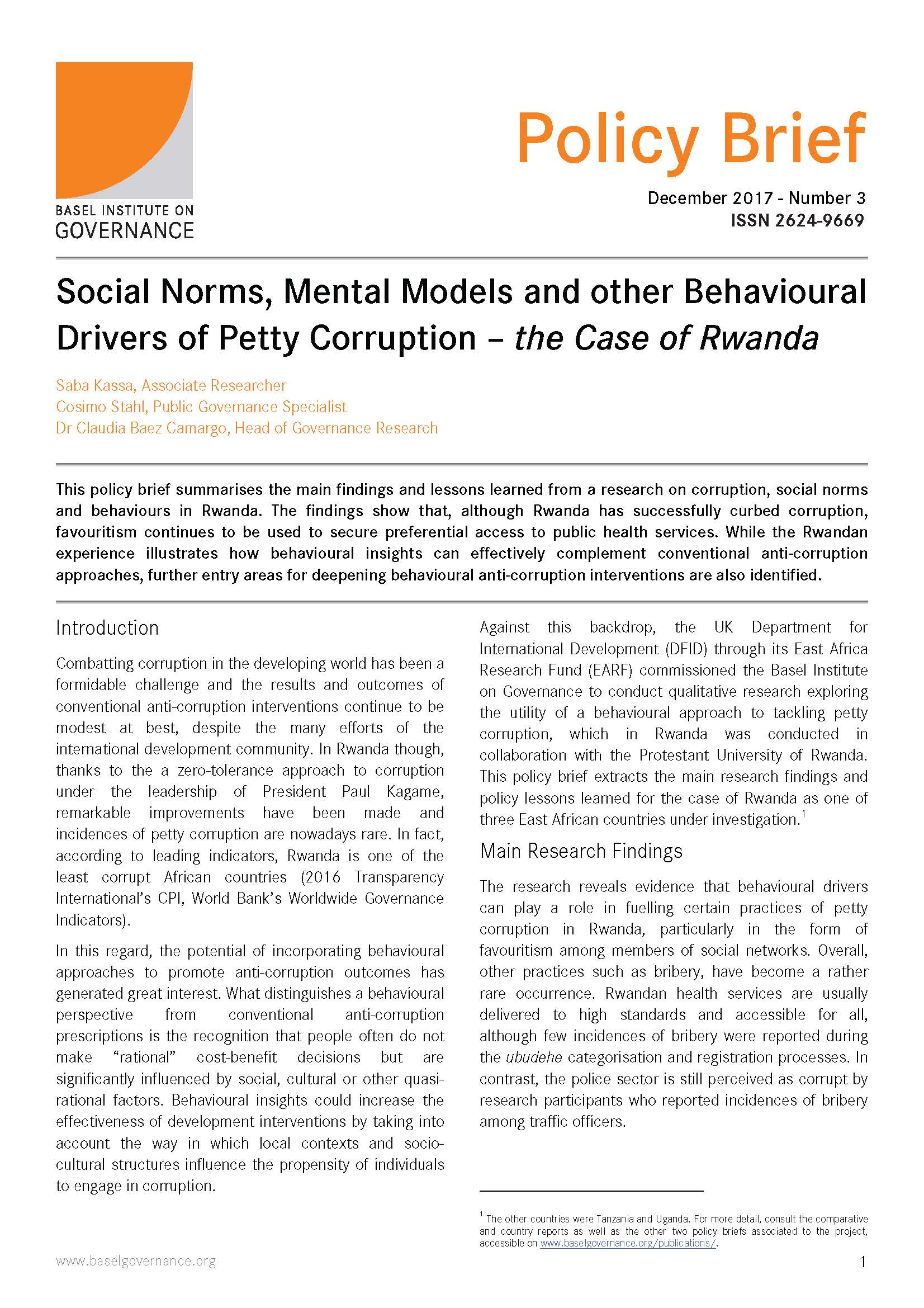Policy Brief 3: Social norms, mental models and other behavioural drivers of petty corruption
The case of Rwanda
Keywords:
social norms, social networks, corruption research, anti-corruption interventions, anti-corruption strategies, RwandaAbstract
This Policy Brief summarises the main findings and lessons learned from a research on corruption, social norms and behaviours in Rwanda. The findings show that, although Rwanda has successfully curbed corruption, favouritism continues to be used to secure preferential access to public health services.
While the Rwandan experience illustrates how behavioural insights can effectively complement conventional anti-corruption approaches, further entry areas for deepening behavioural anti-corruption interventions are also identified.

Downloads
Published
2017-12-01
How to Cite
Baez Camargo, C., Kassa, S. and Stahl, C. (2017) “Policy Brief 3: Social norms, mental models and other behavioural drivers of petty corruption: The case of Rwanda”, Basel Institute on Governance Policy Briefs, (3), pp. 1–4. doi: 10.12685/bigpb.3.1-4.
Issue
Section
Artikel
License
Copyright (c) 2017 Basel Institute on Governance

This work is licensed under a Creative Commons Attribution-NoDerivatives 4.0 International License.

